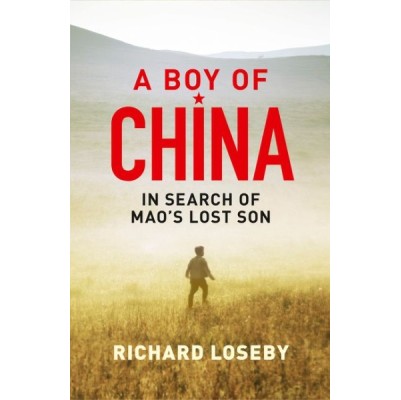Boy of China, A
Loseby, RichardMao Tse-tung gave away a son during the Long March? Interest piqued, New Zealander Richard Loseby set out to determine the truth of the matter. While visiting many of the key places along the 13 000 kilometre route that Mao's Revolutionary Army marched in the 1930s, and revisiting the history of the rise of communism, today's China is also up for scrutiny.
With its fascinating cultural commentary, observations of contemporary China and its intriguing search for 'Little Mao', this part mystery, part travelogue heads off the beaten (tourist) track with gusto and finesse. [Larger font]
Pages
301
301
Year
2016
2016
Reviews
22-01-2024
Enjoyed by all - light, entertaining, enjoyable and interesting.
11-01-2024
All enjoyed the insights into China, and admired the author's ability to communicate while making his way. They liked that he didn't take people and their help for granted. However, some disliked his personality, and and there was some scepticism about the story, which at times seemed perhaps exaggerated for effect.
16-10-2019
We all enjoyed this book, and found his travels across China very interesting. None of us had heard of Richard Loseby, but will look out for his other books.
24-06-2019
Light read. Many found the blurring of the fact/fiction boundary difficult.
24-06-2019
Overall most enjoyed this book. Everyone scored it a 3 or more. However, there was much discussion as to its genre - is it a travelogue, or an historical offering Someone suggested it might perhaps be "an altered history". There were a few too many coincidences so the word "contrived" came up more than once! The book was gentle, mellow, with great characterisation, easy-to-read ( great print size for 'oldies'), and interesting.
05-06-2019
We thought it was a very interesting travelogue, and very interesting to read about the history of Communist China.
27-03-2019
An interesting read giving an insight into life in China, both rural and urban, during the time of Mao's rise as leader of the Communist party, the Long March of 1934 and the present day. We had an interesting discussion, and came to the conclusion that some of the stated accounts regarding the existence of Mao's lost son needed to be taken with a grain of salt. We can recommend this book.
25-01-2019
As often happens, our mixed group of males and females had a variety of opinions on this book. There were more negative comments than positive with those who had visited China (half of the group) being more positive than the others. Many thought the book was not really a true story, finding many events improbable. Most thought the purpose of finding the lost son of Mao was a late addition to a travelogue, possibly suggested by an editor to help sell the book!
25-01-2019
The group felt this was a travel book with a contrived theme to hold it together.
25-01-2019
As an historical book, 'A Boy of China' definitely needs to be "taken with large handfuls of salt". However, the majority of our group found it most enjoyable and a good read. His encounters with various people en route were entertaining, and 'history' was a mere side issue.








